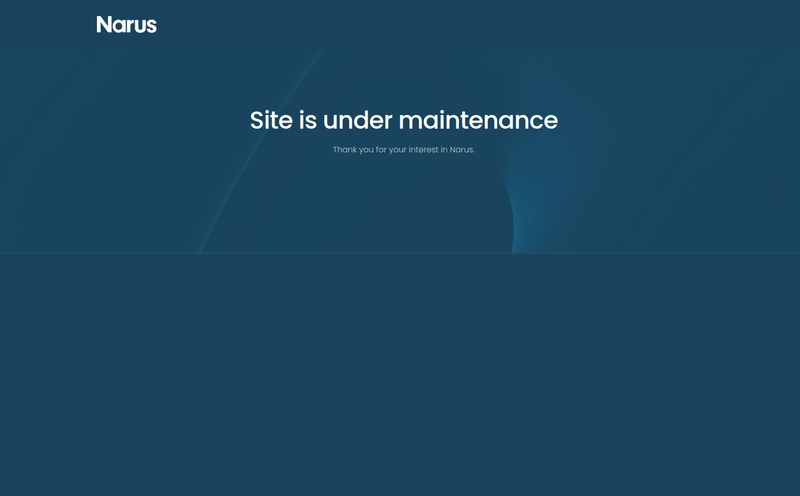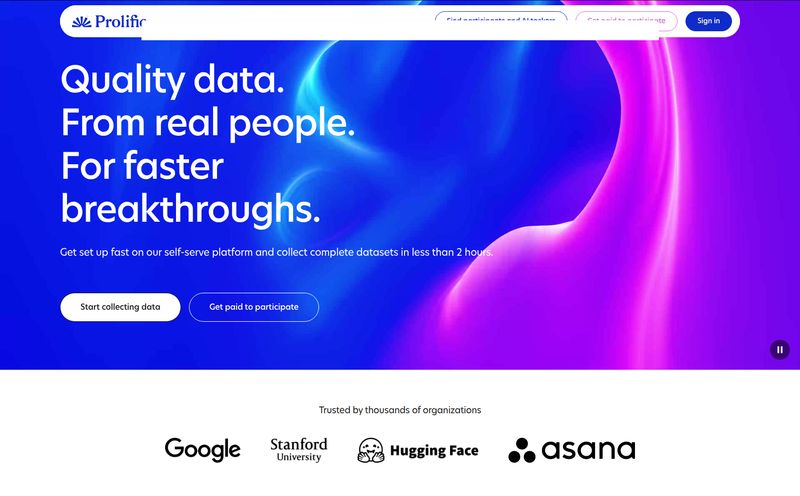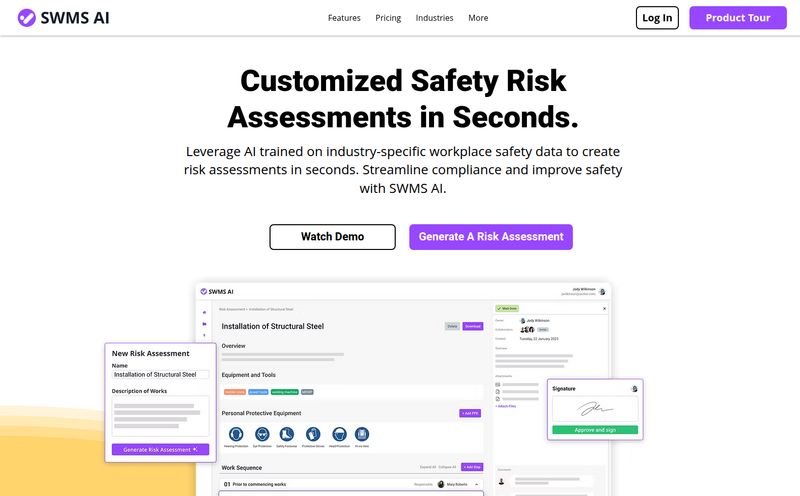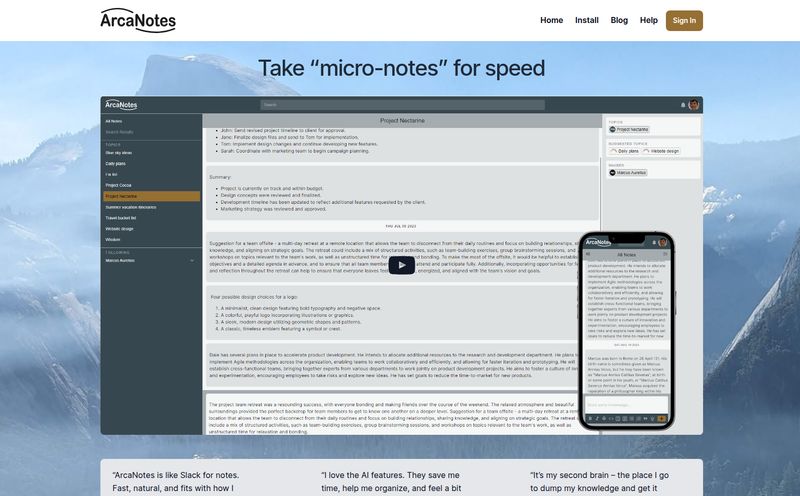We’ve all been there. It’s 10 PM, you’re staring at a cryptic error log, and the only thing keeping you going is cold pizza and the sheer, stubborn refusal to be beaten by a bug. The life of a developer is... rewarding. But man, can it be a grind. The endless cycle of code reviews, bug hunting, and production fires can burn you out faster than a bad `while` loop.
For years, we've heard the promise of AI stepping in to help. Most of the time, it's felt like a solution looking for a problem. A fancy autocomplete here, a clunky suggestion there. Nothing that fundamentally changes the game. But every now and then, a tool comes along that makes you sit up and pay attention. Recently, for me, that tool has been Sourcery. It's making some bold claims, like "1000x faster code reviews," and honestly, my inner skeptic was screaming. But my inner, sleep-deprived developer was curious.
So, What Exactly is This Sourcery Thing?
Think of Sourcery as a two-headed beast, but in a good way. Like a helpful Cerberus for your codebase. On one hand, it's a proactive code quality assistant. It lives in your workflow, looking over your shoulder (metaphorically, don't worry) and offering suggestions to improve your code before it even gets merged. On the other hand, it’s a reactive AI agent for production issues, acting like a digital firefighter for when things inevitably go wrong.
What really got my attention is that it’s not trying to be a standalone, do-everything platform. For its production-fixing magic, it cleverly integrates directly with Sentry, the error monitoring tool many of us already use and trust. It sees a Sentry alert, and instead of just pinging you with the bad news, it rolls up its digital sleeves and gets to work.
That "1000x Faster Code Reviews" Claim... Let's Unpack It
Okay, let's talk about the elephant in the room. A 1000x improvement is... a lot. Marketing hype? Maybe a little. But is there some truth to it? After digging in, I think the number isn't the point. The point is the shift in workflow it represents. This is the 'Code Quality' side of the tool.
Your Automated Guardian on Every PR
The core of its code quality feature is an AI reviewer that scans every single pull request. It's looking for the usual suspects – bugs, security vulnerabilities, performance bottlenecks – but it does it instantly. No more waiting for a senior dev to have a spare 30 minutes. You get immediate feedback right in GitHub or GitLab. This constant, immediate feedback loop is huge for catching silly mistakes before they become deeply embedded problems.
More Than Just a Fancy Linter
I’ve used plenty of linters, and while useful, they can be noisy and lack context. Sourcery aims higher. It doesn’t just flag problems; it can generate pull request summaries to get your human reviewers up to speed quickly. It can even create Mermaid diagrams to visualize complex code changes. For me, that's a game-changer for understanding someone else’s logic without having to trace every single function call. It’s less about just finding errors and more about accelerating genuine understanding and knowledge sharing across the team.
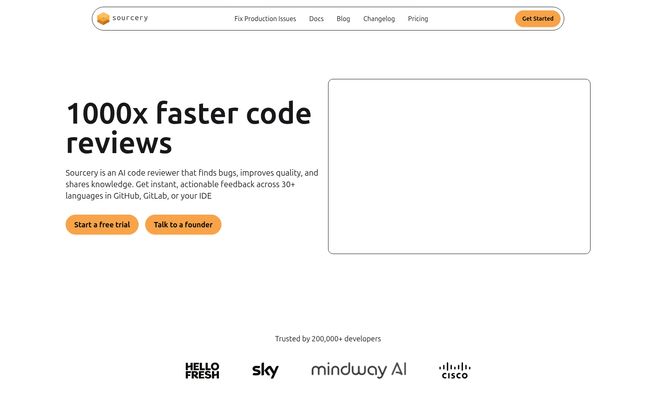
Visit Sourcery
Putting Out Fires with AI: The Production Issues Agent
Now, this is the part that feels like it’s straight out of a sci-fi movie. Your app has a problem in the wild. A user hits a bug. Sentry, as always, catches it and sends an alert. But instead of that alert just dropping into a crowded Slack channel and causing a collective groan, Sourcery intercepts it.
Your AI First Responder
The moment a Sentry issue is created, the Sourcery agent kicks into gear. It investigates the error, analyzes the stack trace, and dives into your codebase to understand the context. Within moments, it pings you on Slack with a full diagnosis: here’s what went wrong, here’s probably why it went wrong, and here’s the best way to fix it. It’s like having a junior dev who works at the speed of light and never needs to sleep.
The One-Click Fix is Real
And here’s the kicker. Sourcery doesn't just tell you how to fix it. It writes the code for you. It presents its proposed fix, and if you like what you see, you can approve it with a single click. Bam. A pull request is automatically created, ready for your team to review and merge. The amount of time saved—from initial alert, to debugging, to coding a fix—is just massive. Think of all the context-switching and late-night head-scratching that just… disappears.
A Look at Sourcery's Pricing Tiers
Alright, so how much does this magic cost? The pricing is split into its two main functions, which I appreciate. You only pay for what you need.
| Plan Type | Plan Name | Price | Key Features |
|---|---|---|---|
| Code Quality | Open Source | Free | Pro features for public, open-source repos. |
| Pro | $12/seat/month | Reviews for private repos, PR summaries, custom rules. | |
| Team | $24/seat/month | Repo analytics, Secrets/SAST scanning, Bring your own LLM. | |
| Enterprise | Contact them | Self-hosting, priority support, dedicated manager. | |
| Production Issues | Free | Free | Monitors Sentry, up to 20 issues/month. |
| Resilience Plus | $200/month | Up to 200 issues/month, Slack integration. | |
| Enterprise Uptime | Contact them | Unlimited investigations. |
The fact that there are generous free tiers for both open-source projects and for handling a small number of production issues is fantastic. It lets you properly kick the tires before committing.
My Honest Take: The Good and The...Quibbles
No tool is perfect, right? After spending time with Sourcery, here's my unfiltered perspective.
What I Genuinely Love
The core concept is just brilliant. Tying automated fixes directly to a monitoring tool like Sentry is the kind of practical, problem-solving innovation I love to see. It’s not a theoretical AI; it's a workhorse designed to solve a very real, very painful problem. The potential for reducing debugging time and support costs is enormous. For teams struggling to keep up with technical debt and a constant stream of bug reports, this could be a lifeline. Plus, features like SAST scanning and secrets scanning on the Team plan add serious security value.
A Few Things to Keep in Mind
First, it's important to know that for the production-fixing side of things, Sourcery isn't a standalone monitoring tool. It relies on Sentry. If you're not a Sentry user, that part of the platform isn't for you. Second, while the free tiers are great, they do have limits on the number of issues processed. That’s to be expected, but you’ll want to check your average monthly Sentry volume to see which plan fits. Lastly, like many AI tools, it uses third-party LLMs. Sourcery is very clear on their site that your code isn't used for training and that they take security seriously, offering PII redaction and even a self-hosting option for enterprise clients who need total control. Its still something to be aware of.
So, Is Sourcery Your Next Hire?
I started out skeptical, and I've ended up genuinely impressed. Sourcery feels like a glimpse into the future of software development, where AI isn't just a gimmick but a legitimate, productivity-boosting teammate.
If you're a solo dev working on an open-source project, the free Code Quality tier is a no-brainer. If you're part of a team feeling the pain of constant bug fixes and want to get proactive, the Resilience Plus and Team plans seem like a very reasonable investment for the time and headaches they could save. For large organizations with strict security needs, the Enterprise option with self-hosting is a powerful proposition.
It’s not going to replace your senior developers, but it might just free them up to work on the big, innovative stuff instead of getting bogged down in the weeds. And that’s a win in my book.
Frequently Asked Questions
- Is my code secure with Sourcery?
- Sourcery states that your code remains the source of truth and they don't train third-party LLM providers on your data. For maximum security, they offer full self-hosting options for enterprise clients, giving you end-to-end control.
- How does billing work? Am I charged for every developer in my organization?
- For the Code Quality plans, you are billed per seat for developers whose code you want reviewed. For the Production Issues plans, billing is based on the volume of issues processed per month, not the number of developers.
- Can I really use Sourcery for free on my open-source project?
- Yes! The Open Source plan provides the Pro-level Code Quality features for free for any public, open-source repositories. This is a fantastic way they give back to the community.
- What if I want to cancel my subscription?
- You can cancel at any time. If you have an annual plan, you will retain access for the remainder of your billing period but won't be charged again.
- Does Sourcery rely on other tools to work?
- Yes, for its standout feature of fixing production bugs, it requires an integration with the error-monitoring tool Sentry.io. It integrates with GitHub and GitLab for its code review functionalities.
